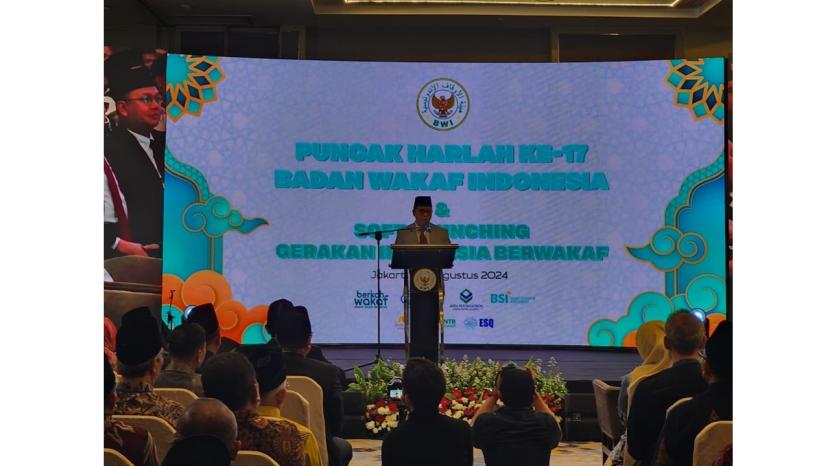REPUBLIKA.CO.ID, JAKARTA -- The Indonesian Wakaf Agency (BWI) held the 17th Birthday Summit (Harlah) on the theme of the Indonesian Waqf Movement at Pullman Hotel Jakarta on Friday (30/8/2024) evening. BWI reiterated that it wants to maximize all waqf instruments to explore the potential of waqf money worth Rp 180 trillion per year.
Chairman of BWI, Prof. Kamaruddin Amin said, BWI wants to invite all elements of the nation, namely the community, to participate in the waqf movement. As the potential of Indonesian waqaf is known, waqaf with money alone, the potential is enormous.
“The potential of waqf money in Indonesia reaches about Rp 180 trillion per year,” Prof. Kamaruddin said at the 17th Harlah BWI event on Friday (30/8/2024).
He explained that BWI wants to provide literacy to the waqf community not necessarily in the form of assets such as land. Waqf with money starting from IDR 20 thousand can only.
The chairman of BWI said, “Imagine if there are 100 million middle-class Indonesians performing waqf amounting to Rp 20,000 per year alone. So the potential is huge.
In this regard, Prof. Kamaruddin said, BWI wants to activate all waqf instruments to be able to explore the potential of waqaf more fully.
“Therefore, we invite the whole community to participate, including friends of the media (press people), we invite together to expand (the waqaf movement), because related to this waqf, the literacy level of our society is still not high, it is still low,” said Prof. Kamaruddin.
According to the Chairman of BWI, it is necessary to continue to disseminate knowledge about waqf among the community. At the same time, we invite people to participate.
Of the Rp 180 trillion potential waqf money in Indonesia, according to BWI, that is currently generated nationally is only Rp 2.5 trillion. God willing, the potential of waqf will continue to be explored so that it continues to grow.
“We will invite all ministries, all civil society, mosques, brides, candidates for hajj and umrah worshippers, invite friends of the press to disseminate (the waqf movement) together,” explained Prof. Kamaruddin.
He revealed that BWI's imagination imagines that someday, hopefully in the not too long time, young Indonesians will have a lifestyle to be waqaf. So the challenge for BWI is to facilitate them, creating instruments that are easily accessible to young children. For example, digital instruments so that they can officiate more easily.


